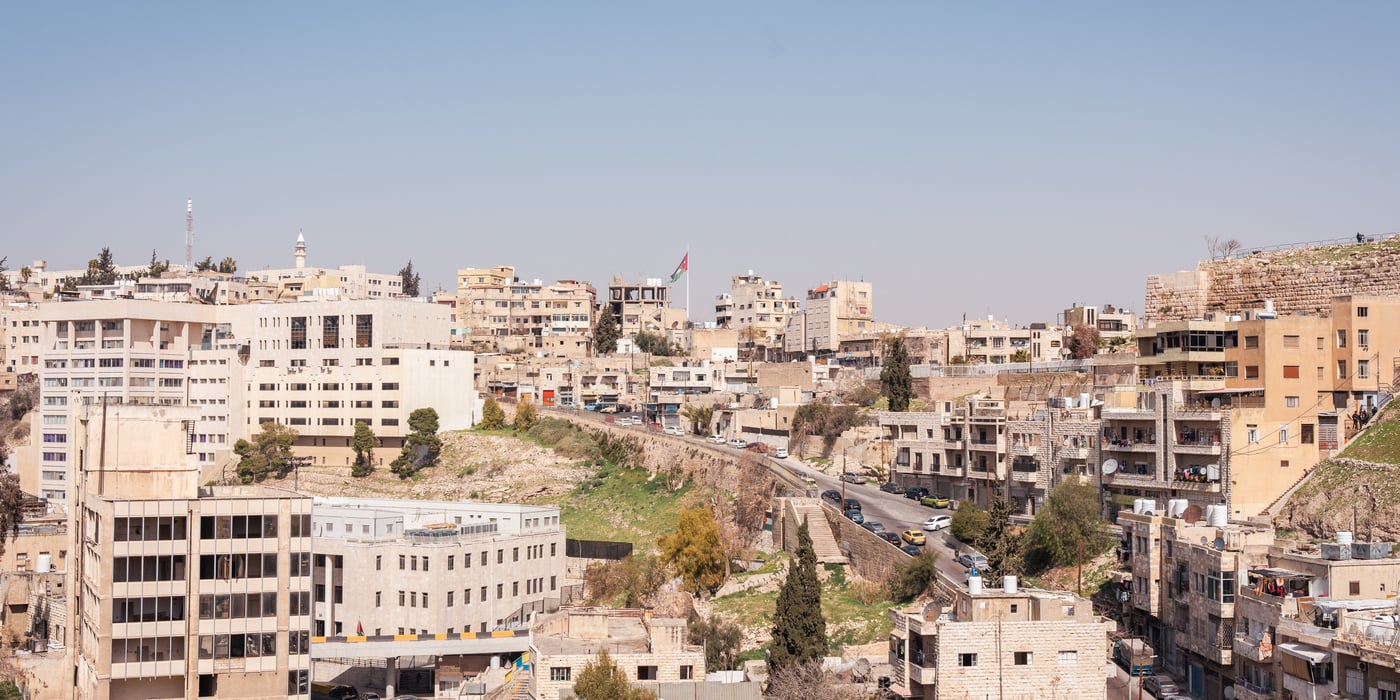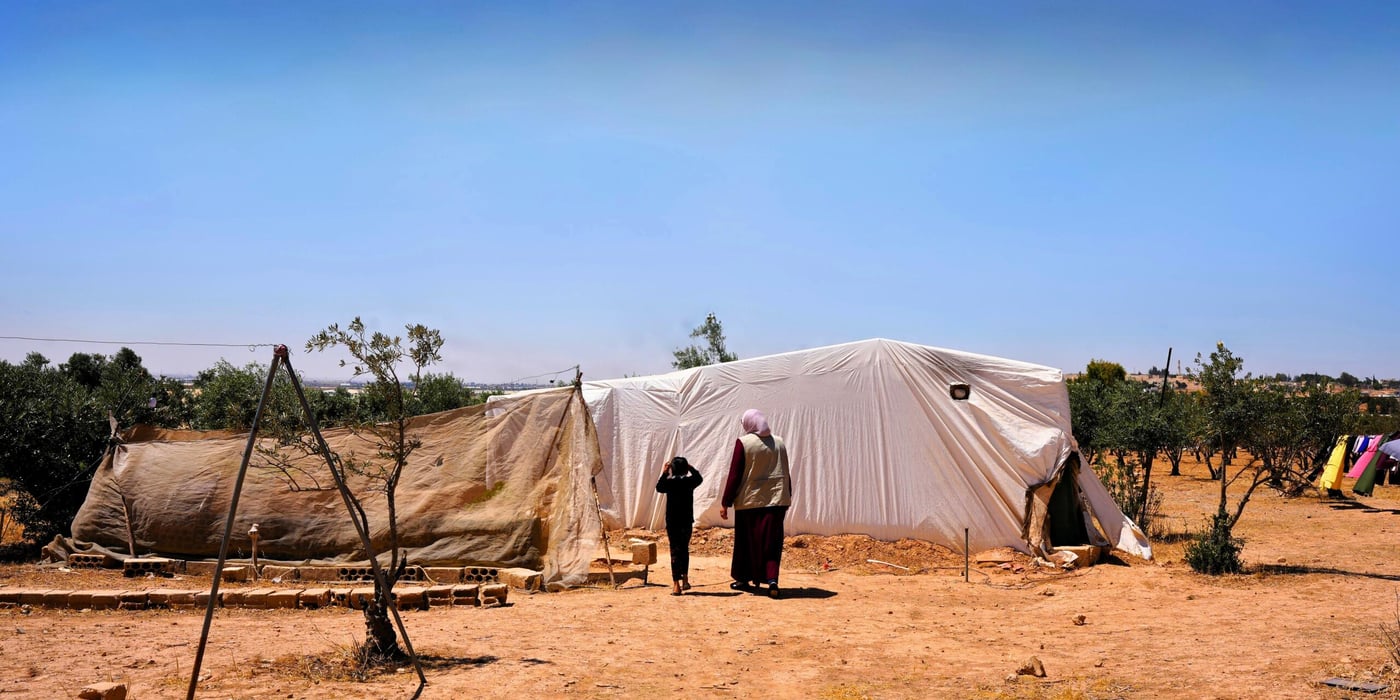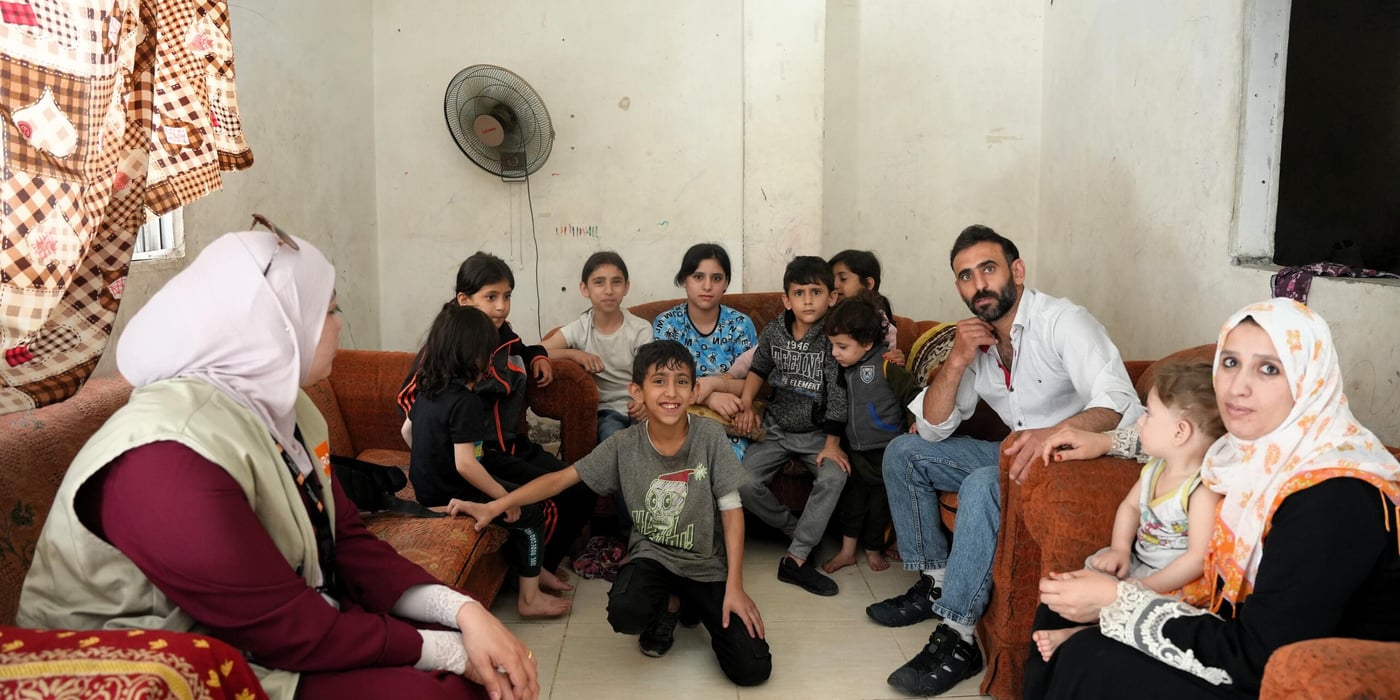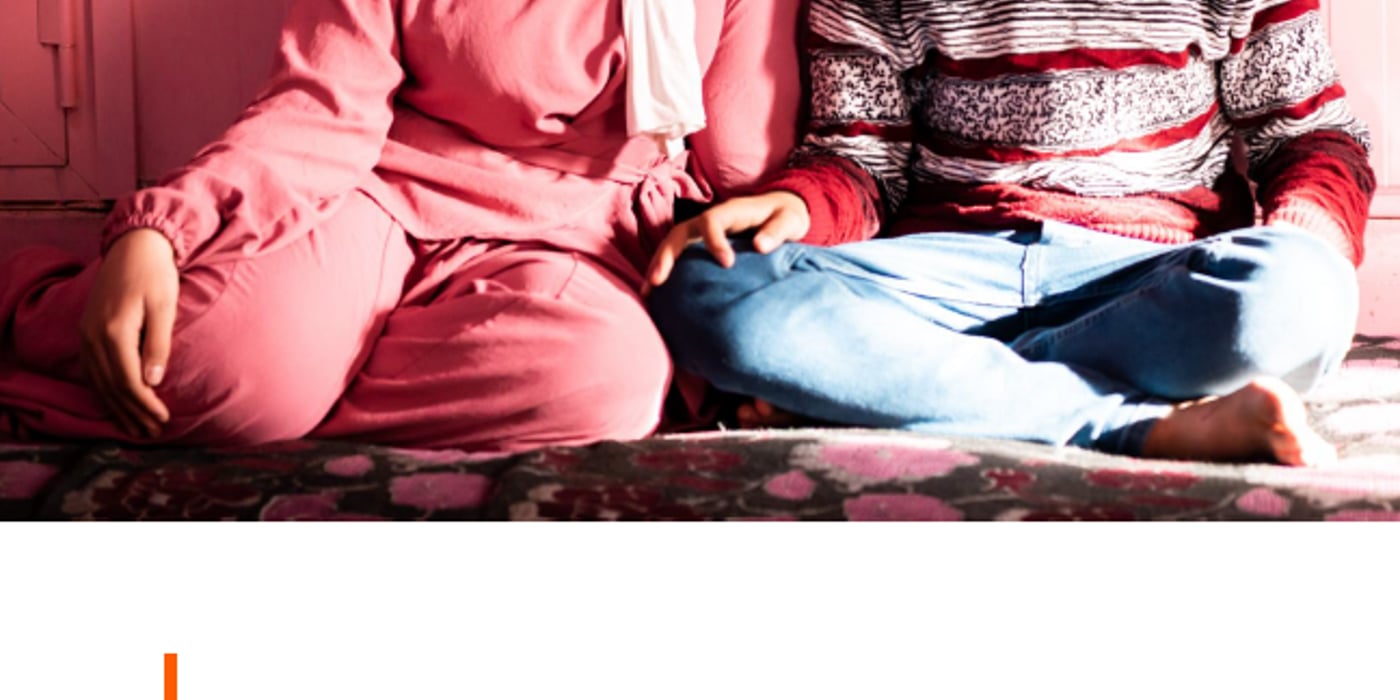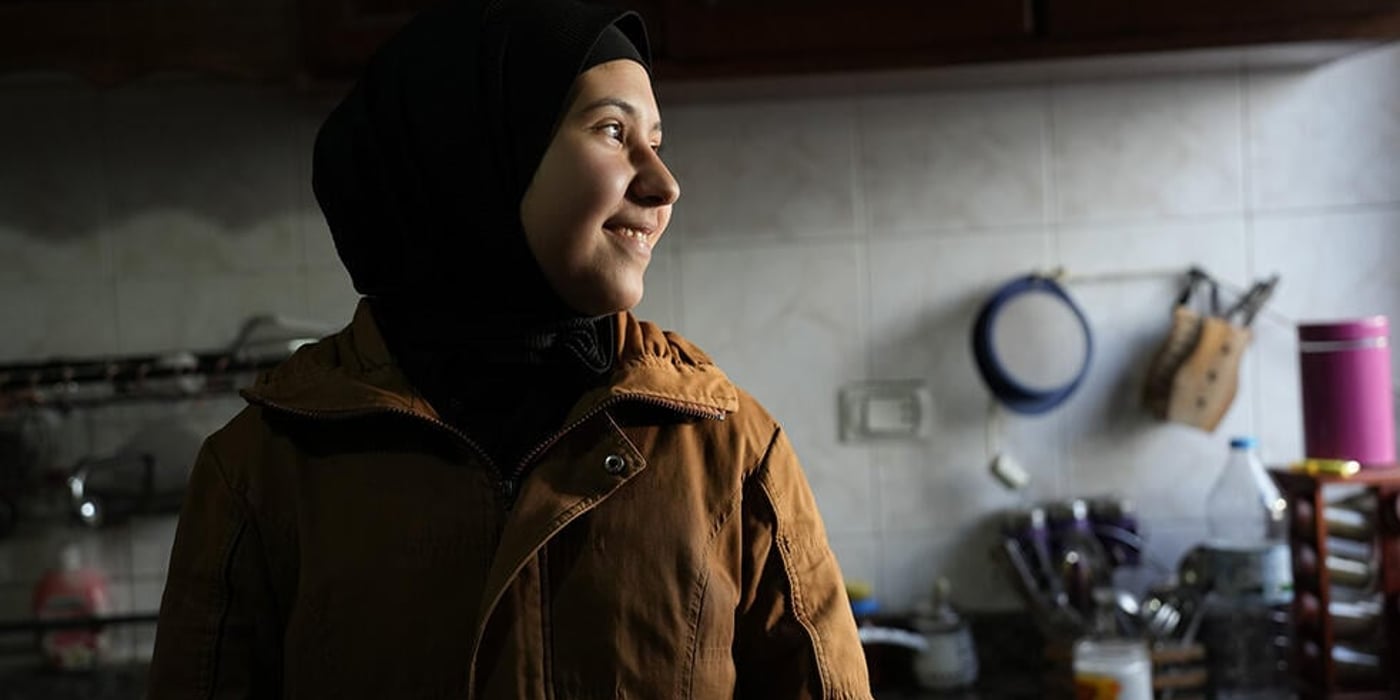The Norwegian Refugee Council (NRC) is hard at work in these camps – and in host communities – helping families access basic essentials, shelter, education and legal support.
What’s happening in Jordan?
Jordan has been a generous host to Syrian refugees, many of whom have been in the country for over a decade, ever since the war broke out.
Most refugees have been able to secure their legal status, and their children can access education. But thousands of others remain unregistered or undocumented, which means they can’t take a formal job and have limited access to essential services. Across Jordan, unemployment is high, incomes are low and debt is rising. As a result, most Syrian refugees live below the poverty line and are urgently in need of humanitarian support.
Our response
We’re working with our partners in the following areas:
- Shelter and settlements – improving and maintaining shelter in camps, while also helping to deliver basic needs assistance and running cash-for-rent programmes in host communities.
- Livelihoods and food security – providing employability, technical and digital skills training, along with entrepreneurship development support to help people earn an income.
- Education – running flexible education programmes and vocational training, as well as providing professional development for teachers and vital psychosocial support.
- Information, counselling and legal assistance – helping people obtain legal and civil documentation, navigate legal residency in Jordan, claim housing rights and resolve work rights issues.
Our operations
NRC office established: 2012
Areas of operation: Irbid, Jerash, Madaba, Zarqa, Mafraq, Amman, Zaatari camp, Azraq camp
Country Director: Amy Schmidt
Contact: jo.nrcjordan@nrc.no
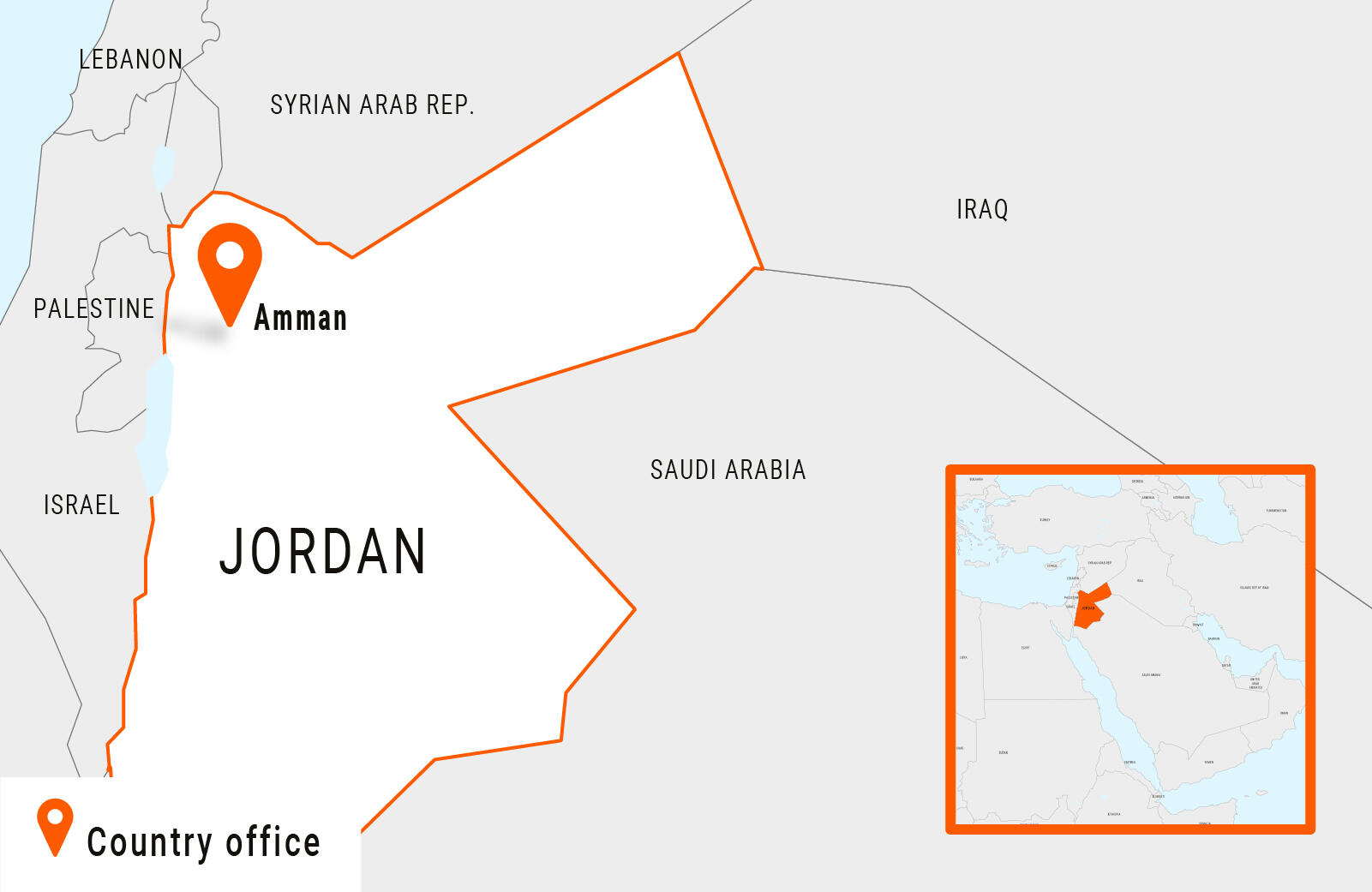
Our impact
In 2024, we assisted 61,502 people through our programmes in Jordan:
-
4,477Education
-
3,809Livelihoods and food security
-
20,406Shelter and settlements
-
33,133Information, counselling and legal assistance
-
3,136Other activities
Note: some people received more than one type of assistance.



